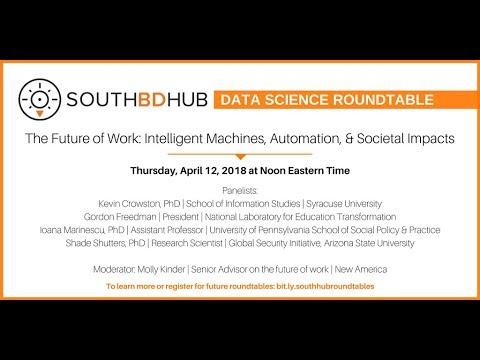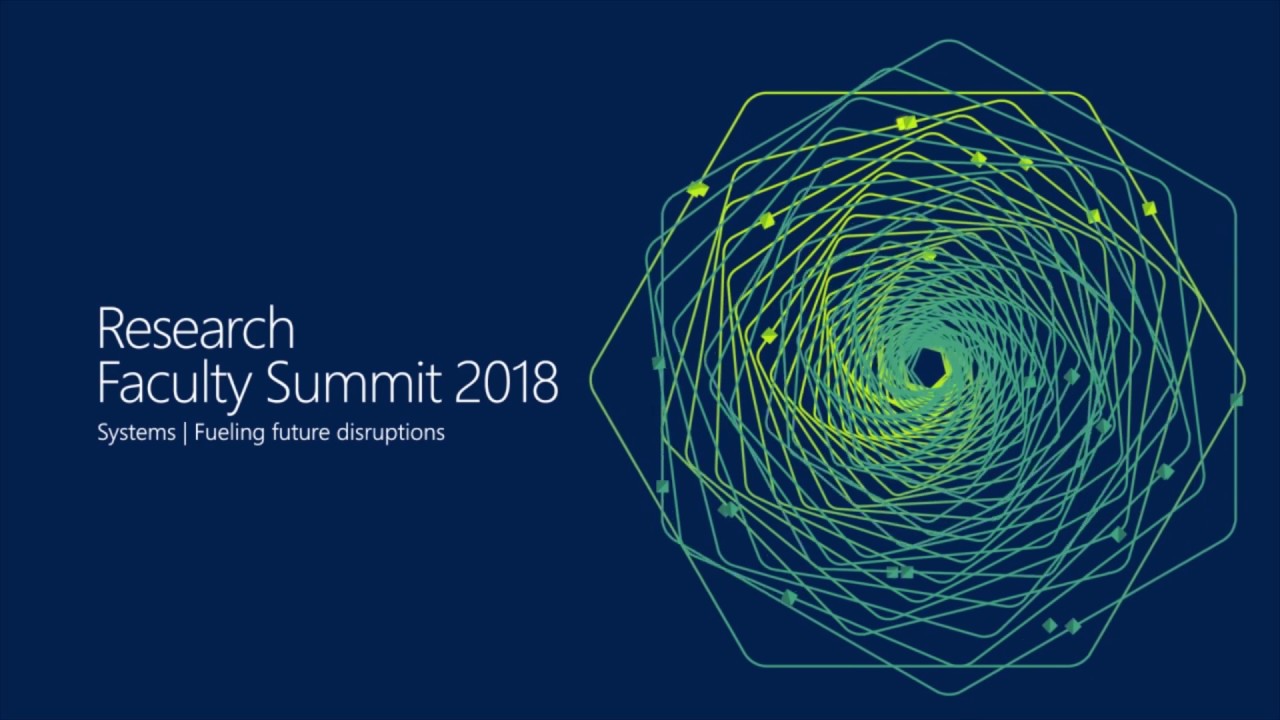Big Think
Biographer Walter Isaacson compares Alan Turing’s computing philosophy with that of Ada Lovelace a hundred years prior. Turing, the subject of the new film “The Imitation Game,” is also featured prominently in Isaacson’s new book “The Innovators: How a Group of Inventors, Hackers, Geniuses and Geeks Created the Digital Revolution.” (http://goo.gl/YpWNOU)
Read more at BigThink.com: http://bigthink.com/think-tank/walter-isaacson-on-alan-turing
Follow Big Think here:
YouTube: http://goo.gl/CPTsV5
Facebook: https://www.facebook.com/BigThinkdotcom
Twitter: https://twitter.com/bigthink
Transcript – It’s great to trace things back to Alan Turing. You know he’s in Bletchley Park, England. He had come up with the concept of the universal computing machine but then he has to help put it in practice to break the German wartime code. So he comes up with a device called the bomb and then colossus and these are machines that can break the code and he starts thinking about the difference between human imagination and machine intelligence. And it goes back to what he calls Lady Lovelace’s objection. It goes back to Ada Lovelace a hundred years earlier who had said machines will be able to do everything except think. And so Turing comes up with what he calls the imitation game. Now we call it the Turing test in which he tries to figure out how would you tell the difference between a human and a machine. How would you know the machine’s not intelligent. He says well put a human and a machine in a different room, we send them in questions and if after a while you can’t tell which one’s a machine and which one’s a human, then it makes no sense to say the machine isn’t thinking.
Now you can have philosophical arguments about whether or not that’s a good test but ever since then, it’s been about 65 years since he came up with that concept, we’ve been trying to invent machines that would pass the Turing test or the imitation game. Every now and then you read about a machine that can sort of do conversational gambits and maybe confuse a person for five minutes or so and sort of try to pass the Turing test. But surprisingly we found it very difficult to have machines that can really carry on a conversation and be confused with a human. You can usually tell the machine from the human. A different way of looking at the way the computer age evolved is sort of Ada Lovelace’s way which is that computers and humans will evolve symbiotically. They’ll be partners. We will get more intimately connected to our machines and the machines will amplify our intelligence and our creativity will amplify what the machines could do.
And we don’t need to try to create robots that’ll work without us. It’s kind of cooler to create this partnership of humans and technology or as she put it the humanities and engineering. So those are really the two schools of thought in computer programming. And every now and then you hear people say the singularity’s coming or we’re about to get to the age of artificial intelligence and machine learning. And I suspect it may come but it’s always about 20 years away. And in the meantime it’s sort of the Ada Lovelace vision rather than the Alan Turing vision. The vision of having machines that connect to us more intimately rather than replace us and don’t need us anymore.
Directed / Produced by Jonathan Fowler, Elizabeth Rodd, and Dillon Fitton
Source




Didn't Poles invented first enigma bombe and Brits made it just better and bigger?
didn't cleverbot passed the test ? I think it did
Syntax v Semantics. Machines/computers will never be able to attach meaning to language, or anything for that matter.
doesn't seem to matter though, machines can evolve the equivalent of billions of years of organic unguided evolution in a matter of years, probably because, well, we are there to guide them, it seems possible that there will arise a time where machines will dictate their own evolution, things we animals from earth can only dream of trying to do with ourselfs.
The entire field of AI has been misguided ever since Turing, and that is why the best AI researchers can spend 4 years building a robot which can't even surpass the dexterity of a 6 year old human child. The flaw in Turing's view was that intelligence is not measured by behavior, but rather by prediction. The correct approach to machine intelligence is that of Jeff Hawkins and HTM theory, which both explains the basic mechanisms which drive the cortical learning algorithms fundamental to our higher-order thinking capabilities, as well as lays out a theoretical path to building leaner, more efficient memory hierarchies which operate on those same principles as the human neocortex in silico.
Why should a machine think like us? I think it would be better, and frankly inevetable to happen, that they would have atleast notably different psychology, even if just for the reason that we don't understand human mind that well to recreate one and propably won't for long time. Also human minds are very unsuited for tasks we could use these machines the most. Who knows, maybe such different mind would help us understand our own minds better, give a fresh pespective, lets say.
This also makes me belive that Turing test is flawed as it could be broken by a single question: "Are you a machine"? If the machine answers yes, its gg, cover blown. However if it answers "No, Im a human.", It better be intentionally lying or we are on a very bad path.
To solve this kind of things we must delve to the deep filosophical questions like "What is intelligence?" and actually come up with something quantifiable and usefull.
One big thing that must be solved before developing AI is artifical morality. You can propably imagine how a AI without a proper one might act and if you don't, no problem, just look at Space Odyssey, Portal or any other scifi with such themes.
Everyone is looking at this the wrong way. You might be able to perfectly program a computer to mimic a human, but it is just that; a program. To truly get something to think, to truly think, you would need to look at the hardware, not just the software. Make something that physically functions like individual neurons and synapses so the computer can update and change how it thinks on the fly, like humans. Another thing we would need to do to make a computer think for itself would be to make something that mimics the chemicals in the brain, the chemicals that motivates and drives our thoughts and very being; What would be the point of a computer if it doesn't want to do anything and just 'doesn't feel like it' always?
Brilliant
Shit I'm still kinda stoked my buddy had a conversation with his damn phone. Talking to this Siri app about what happened in a football game and shit. Can't wait to see what they come out with in like 40 years.
Intelligence is vetted in the effectiveness of the decisions we make. If machines eventually make better decisions on average, then they'll be smarter. That's simple enough.
Watching this video, I immediately thought of Advanced Chess, a relatively new form of chess, wherein each human player uses a computer chess program to help him explore the possible results of candidate moves. The human players, despite this computer assistance, are still fully in control of what moves their "team" (of one human and one computer) makes.
Well symbiose with machine sounds good and all but to me there is more chance that human will gradually become moron depending on machine than anything else. To me, we are not using machine to make us better, we are making machine better so that we don't have to be better ourselves.
Green ending is the best ending.
Read the predictions of Ray Kurzweil (Mr. Singularity). This is what he's been saying for decades.
May the symbiosis begin.
A human talking with a machine is the dream of a machine lover.
You should build a Von Neumann machine, it is practical.
Emotions are models in execution in the mind. If you want their results to affect genitals, then add these genitals to your machine. If you're seeking for health and all answers, then that is the Von Neumann machine. If you want a machine to teach a model to you, then make it optimize and see what is it doing. Humans are so blind, all answers are right in front of you, all you need to do is see without your hand in front of your eyes.
So he who has the best machinery wins ?
Isn't that how it works now ?
For a machine to show humanity , it has to be able to
" Pick Your Pocket , While Seducing You " .
Have the computer rap. Then you wouldn't be able to tell the difference between the machine and the rapper.
It's like a monkey claiming intelligence is signified by proficient flea grooming.
Some of your may have a different perspective after watching Parasyte the maxim.
I am all in for builing robots though 🙂
Recently a non computer friend suggested I see the movie. Thank You Walter for reminding me about the Turing test, and the explanation of the movie's title. I have been dong computer since early childhood. Physically close to MIT attended and read many papers on Neural nets. If the definition of a positive Turing test is a successful "Expert System", then I have done a few. Capturing the knowledge of an "Expert" is difficult, and developing a system that works and can learn even more is nearly impossible.
In the mid 80's the two giants of the mini computer business (Digital Equipment & Data General) delivered custom hardware solutions. Both required translation of a sales order into a list of manufactured assemblies and diagrams describing their interconnection (configuration). This engineering process was expensive and error prone.
My counterpart DEC engineer lectured for years on the merits of neural nets. Instead, I defined the problem as understanding what the best and worst human experts did (to error is human) and devised a method of defining rules to create system designs. But the real challenge was describing these rules in data rather than code, and providing a human interface to define and refine these rules.
The resulting designs were as "intelligent" as the best expert, and I considered this a passing grade for the Turing test.
Turing did not 'come up' with Colossus it was other members of the team at Bletchley Park who did that, principally Tommy Flowers.
I gotta write an essay based on this.. Smh, we out here failing y'all.